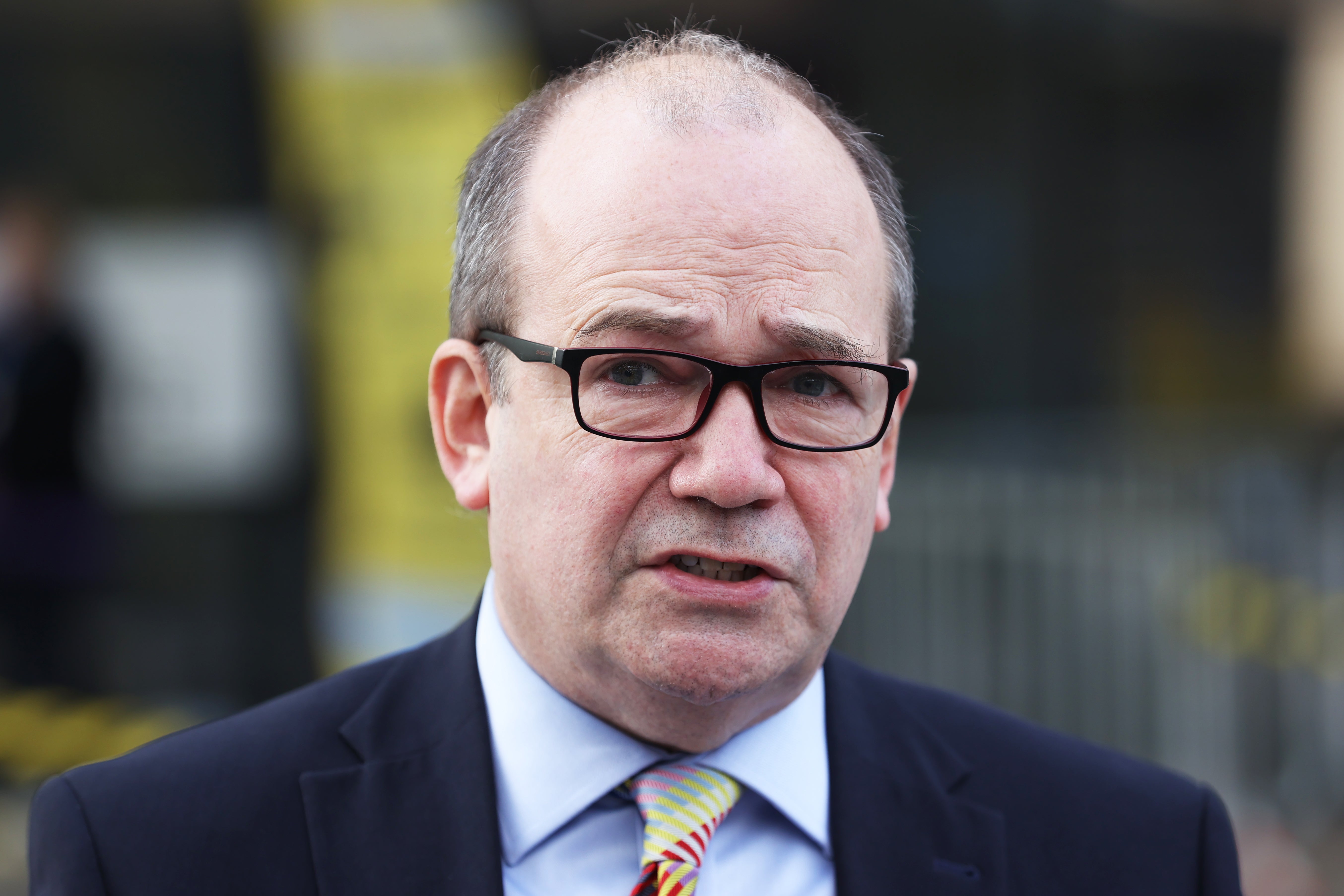Northern Ireland records first cases of Omicron variant
Three cases have been recorded in total, the Department of Health said.

Your support helps us to tell the story
From reproductive rights to climate change to Big Tech, The Independent is on the ground when the story is developing. Whether it's investigating the financials of Elon Musk's pro-Trump PAC or producing our latest documentary, 'The A Word', which shines a light on the American women fighting for reproductive rights, we know how important it is to parse out the facts from the messaging.
At such a critical moment in US history, we need reporters on the ground. Your donation allows us to keep sending journalists to speak to both sides of the story.
The Independent is trusted by Americans across the entire political spectrum. And unlike many other quality news outlets, we choose not to lock Americans out of our reporting and analysis with paywalls. We believe quality journalism should be available to everyone, paid for by those who can afford it.
Your support makes all the difference.The first Omicron variant cases of Covid-19 have been confirmed in Northern Ireland the Department of Health said on Tuesday.
Three Omicron cases have been confirmed in total, the department said.
Two are from same household in the greater Belfast area and a third unconnected case is in the South Eastern Trust area.
The Department of Health said all three positive cases have a link to travel from Great Britain to Northern Ireland.
First Minister Paul Givan has said he will be meeting with political leaders from across the UK to discuss the response to the variant.
He tweeted on Tuesday evening: “Meeting with Michael Gove, Scottish and Welsh first ministers on Thursday to discuss approach to new Omicron variant.
“As scientists continue to assess its impact, important to reinforce personal responsibility for hygiene, face coverings and I encourage people to get the booster jab.”
Deputy First Minister Michelle O’Neill called it a “concerning but not unexpected development”.
She tweeted: “It’s more important than ever that everyone follows the steps that will help to keep you and your family safe. Please take up the vaccines and booster and follow the health advice
“We need to work together to slow the spread of Covid-19.”
Chief medical officer Sir Michael McBride said: “This is a development we have been expecting and preparing for since we were first made aware of the Omicron variant.”
“Targeted actions by the Public Health Agency – including testing and enhanced contact tracing – are ongoing to investigate and assess these cases. There is no evidence at this time of wider community transmission in Northern Ireland,” he said.
“This is not a time for panic, but for sustained caution. We are awaiting further data on this new variant and the extent of the public health threat it represents.
“It is undoubtedly a cause for concern and has the potential to spread rapidly, adding significantly to the already severe pressures on health and social care services.
“We will continue to liaise closely with public health colleagues across these islands.
“Given the evidence of community transmission of Omicron elsewhere in the common travel area, we would once again advise people to take a lateral flow Covid-19 test before travelling to Northern Ireland from England, Scotland, Wales or the Republic of Ireland.”
The chief medical officer urged people to continue following public health advice.
SDLP leader Colum Eastwood tweeted on Tuesday: “We knew there would be cases of the Omicron variant here sooner rather than later.
“We all need to follow public health guidance including mask wearing. But the most important thing you can do to protect yourself and the health service is to get vaccinated and get your booster.”
The Republic of Ireland has introduced new restrictions – including the shuttering of nightclubs and a maximum of 50% capacity at entertainment, cultural, community and sporting events – partly amid concern among health officials about the new Omicron variant.